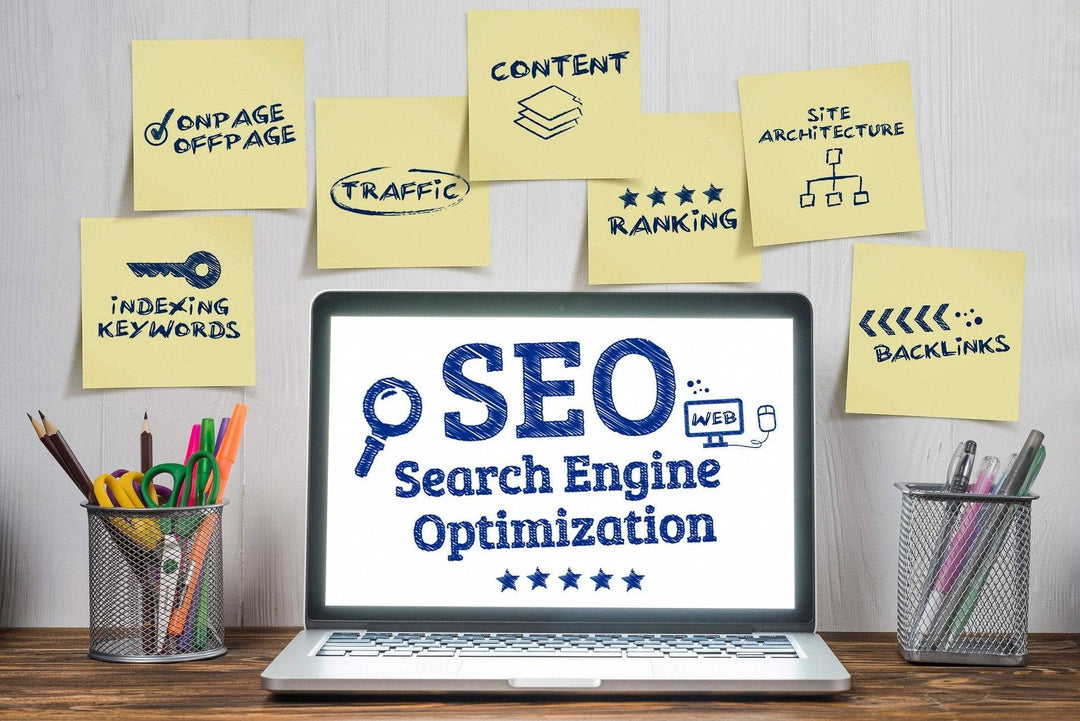Overview
Understanding and utilizing analytics is crucial for e-commerce success, especially for Shopify store owners. This blog discusses the importance of analytics, how to access and interpret Shopify's built-in features, the benefits of integrating Google Analytics, and leveraging AI for personalized product recommendations. It also covers strategies for tracking customer retention, optimizing marketing efforts, and creating custom reports for deeper insights. Continuous improvement and adaptation to trends are emphasized as key to boosting your store's performance and sales.
Frequently Asked Questions
1. Why is analytics important for e-commerce success?
2. How can I access Shopify's built-in analytics features?
3. What are some key performance indicators (KPIs) to monitor in my Shopify store?
4. How do I set up Google Analytics for my Shopify store?
5. What is the benefit of using AI-based search for product recommendations?
In the ever-evolving world of e-commerce, understanding your store’s performance is essential to staying ahead of the competition. Leveraging the right analytics tools can dramatically transform the way you manage your Shopify operations. Here’s how you can analyze your Shopify store’s performance and boost your online business using insightful data.
The Importance of Analytics for E-commerce Success
When you operate a Shopify store, having access to analytics means you have valuable insights at your fingertips. With the right metrics, you can:
- Identify customer behavior patterns
- Monitor sales performance
- Assess your marketing campaigns
- Enhance customer experience
- Boost conversion rates
By taking time to dive deep into your analytics, you can optimize strategies to enhance your Shopify operations and ultimately increase sales.
Getting Started with Shopify Analytics
Shopify provides built-in analytics features that allow store owners to track key performance indicators (KPIs). To access these features, navigate to your Shopify dashboard and look for the "Analytics" tab. Here are a few critical metrics you can monitor:
Total Sales
Understanding your total sales is crucial. This metric tells you how much revenue your store is generating over a specified period. Comparing total sales month-over-month can help you identify growth trends or downturns in your store's performance.
Traffic Sources
Knowing where your traffic is coming from helps target your marketing efforts effectively. Shopify analytics provides insights into organic search, paid ads, social media, referral traffic, and direct visits. Analyze which sources are yielding the best results and refine your strategy accordingly.
Conversion Rate
Your conversion rate is the percentage of visitors who make a purchase. This is a significant metric that impacts your revenue and should be monitored closely. Understanding this figure can help you pinpoint where customers drop off in their purchasing journey.
Utilizing Google Analytics with Shopify
While Shopify has robust analytics features, many store owners find it beneficial to integrate Google Analytics for deeper insights. This tool will provide additional tracking capabilities, allowing you to analyze customer behavior more comprehensively.
Setting Up Google Analytics
To utilize Google Analytics effectively, you need to set it up with your Shopify store:
- Sign up for a Google Analytics account.
- Get your unique tracking ID from Google Analytics.
- Access your Shopify admin, go to "Online Store", then "Preferences".
- Paste your tracking ID in the Google Analytics account field.
After linking your accounts, you can track detailed customer interactions, user flow, and more.
Diving Deep into Customer Behavior Analytics
Understanding customer behavior is crucial for optimizing your store. Analytics can reveal what categories attract customers, which products are frequently viewed together, and how long customers spend on certain pages.
Behavior Flow
Using the Behavior Flow feature in Google Analytics, you can visualize the path visitors take through your store. This insight helps identify where customers are most engaged and where they are losing interest. You can use this information to enhance navigation and improve user experience.
Checkout Behavior
The checkout process is a critical area where many potential sales are lost. Analyzing checkout behavior can help you identify at what stages customers abandon their carts. Ensuring this process is simple and optimized can significantly increase your store's conversion rate.

Leveraging AI-Based Search for Product Recommendations
As part of your Shopify operations training, utilizing AI-based tools for product recommendations can improve user experience and increase sales. These technologies analyze customer interactions and behaviors to suggest products that align with their preferences, boosting the chances of upselling and cross-selling.
The Benefits of AI-Based Recommendations
- Personalization: Customers are more likely to purchase when they feel understood. AI helps deliver personalized experiences by recommending products tailor-made for individual preferences.
- Increased Average Order Value: Effective upselling through personalized recommendations can raise your average cart value substantially.
- Improved Engagement: When customers are shown relevant products, they spend more time on your site, further increasing conversion potential.
Keeping Track of Customer Retention
Customer retention is vital for sustainable business growth. Keep an eye on returning customer rates versus new customer rates. By encouraging repeat purchases, you can increase customer lifetime value (CLV). Consider analyzing:
Customer Segmentation
Segmenting your customers based on their buying behavior will help you tailor your marketing strategies effectively. Targeted campaigns can lead to higher engagement and improved long-term loyalty.
Feedback and Reviews
Encouraging customer feedback and reviews is essential. Analyze this information to identify issues in the customer experience. Addressing these concerns promptly can enhance satisfaction and encourage repeat business.
Optimizing Your Marketing Strategies with Analytics
Analytics can also illuminate the effectiveness of your marketing campaigns. Here are a few strategies for leveraging this data to boost your marketing efforts:
Monitor Email Marketing Performance
If you're utilizing email marketing, tracking open rates, click-through rates, and conversion metrics will reveal valuable insights. Identify which email campaigns are performing well and which need refining.
Social Media Impact
Social media is a powerful marketing tool; tracking referral traffic from different platforms can help you allocate resources effectively. Analyze which platforms drive the most sales and focus on those for content production and advertising efforts.
Creating Custom Reports for Deeper Insights
Shopify allows you to create custom reports that focus on specific data points. These reports can help you identify trends and insights that matter most to your business. Consider including:
- Sales by product categories
- Customer acquisition costs
- Top-selling products
Custom reports tailored to your goals will provide targeted insights that can guide decision-making effectively.
Staying Ahead with Continuous Improvement
Analyzing performance is not a one-off task; it should be a continuous process. Be open to experimenting with different strategies and measuring their outcomes. A/B testing is a powerful method to determine what works best for your store.
Adapting to Changes & Trends
The e-commerce landscape is constantly shifting, and knowing how to pivot quickly is essential. Whether it's a change in consumer preferences or new technologies, being adaptable will ensure you remain competitive.
Continuous Learning and Training
Investing in Shopify operations training for yourself or your team is pivotal. It will enhance your skills in using analytics effectively and staying informed about the latest trends in e-commerce.
Boosting Your Shopify Store's Potential
Your Shopify store can thrive with the right analytical tools and approaches. By monitoring key metrics, leveraging AI-based search for product recommendations, and continuously refining your strategies, you can create a fully optimized online store that meets customer needs and drives sales.
So, take charge today! Analyze your data, connect with your audience in meaningful ways, and watch your Shopify store flourish in this dynamic e-commerce world.
Linked Product

Shopify Operations Bootcamp: Master Your Store’s Daily Workflow
The Shopify Operations Bootcamp offers a comprehensive learning experience for new store owners and e-commerce entrepreneurs focused on enhancing daily workflows. Participants will gain practical skills in inventory management, shipping optimization, and customer service best practices. This hands-on workshop is designed to help attendees streamline operations and improve overall store performance.
View ProductExplore the creations of a fellow Shopify or Wix store owner. Follow this link to their online store. Please be advised that this is a promotional link, and we cannot guarantee the content of the linked store.






Leave a comment